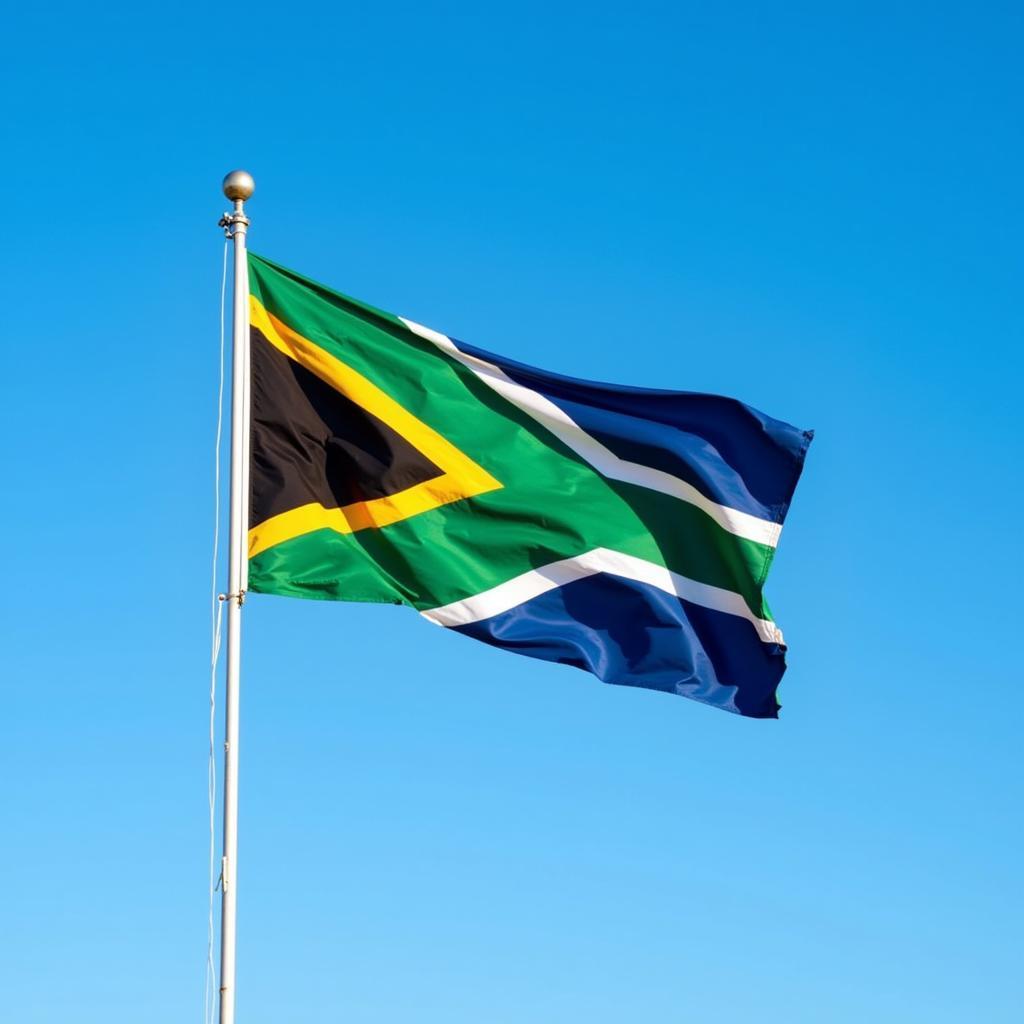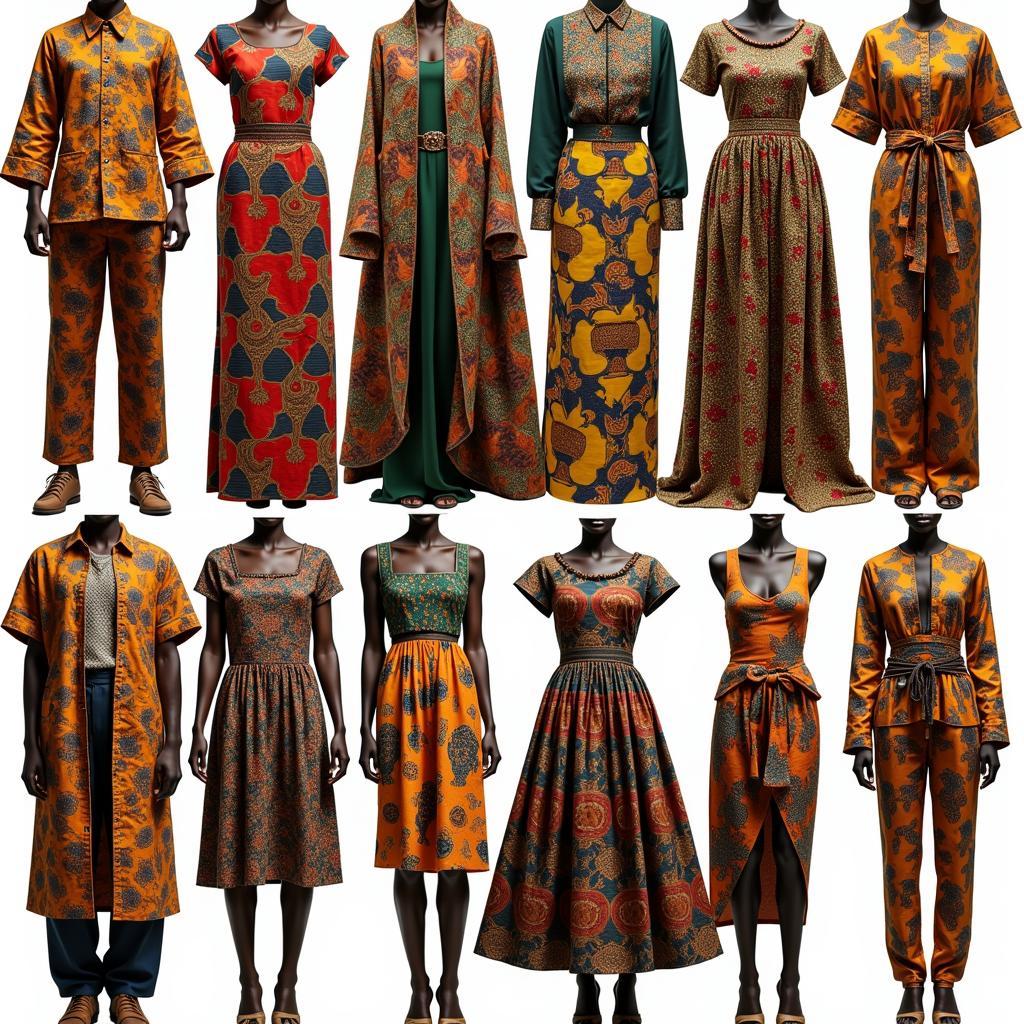Understanding the African Chinese Baby Narrative
The term “African Chinese Baby” often sparks curiosity and raises questions about identity, cultural exchange, and the evolving demographics of Africa. This article delves into the complexities surrounding this topic, exploring the historical, social, and cultural factors that contribute to the growing presence of Chinese communities in Africa and the subsequent birth of children of mixed heritage.
The Growing Chinese Presence in Africa and the Emergence of African Chinese Babies
China’s engagement with Africa has intensified significantly over recent decades, driven by economic partnerships, infrastructure development projects, and increasing migration. This influx of Chinese nationals into various African countries has led to closer interactions between Chinese and African communities, resulting in a growing number of interracial relationships and the birth of children of mixed African and Chinese heritage. These children, often referred to as “African Chinese babies,” represent a new generation navigating the complexities of dual cultural identities.
The increasing presence of Chinese communities has contributed significantly to Africa’s economic development, particularly in sectors such as infrastructure, telecommunications, and trade. However, it has also raised concerns about labor practices, environmental impact, and cultural integration. Understanding the nuanced realities of this growing relationship is crucial to fostering mutually beneficial partnerships and addressing the challenges that arise.
What are the social implications of this growing Chinese presence in Africa? This is a complex question with no easy answers. The impact varies considerably across different African countries and communities. While some welcome the economic opportunities and cultural exchange, others express concerns about potential displacement, exploitation, and the erosion of local traditions.
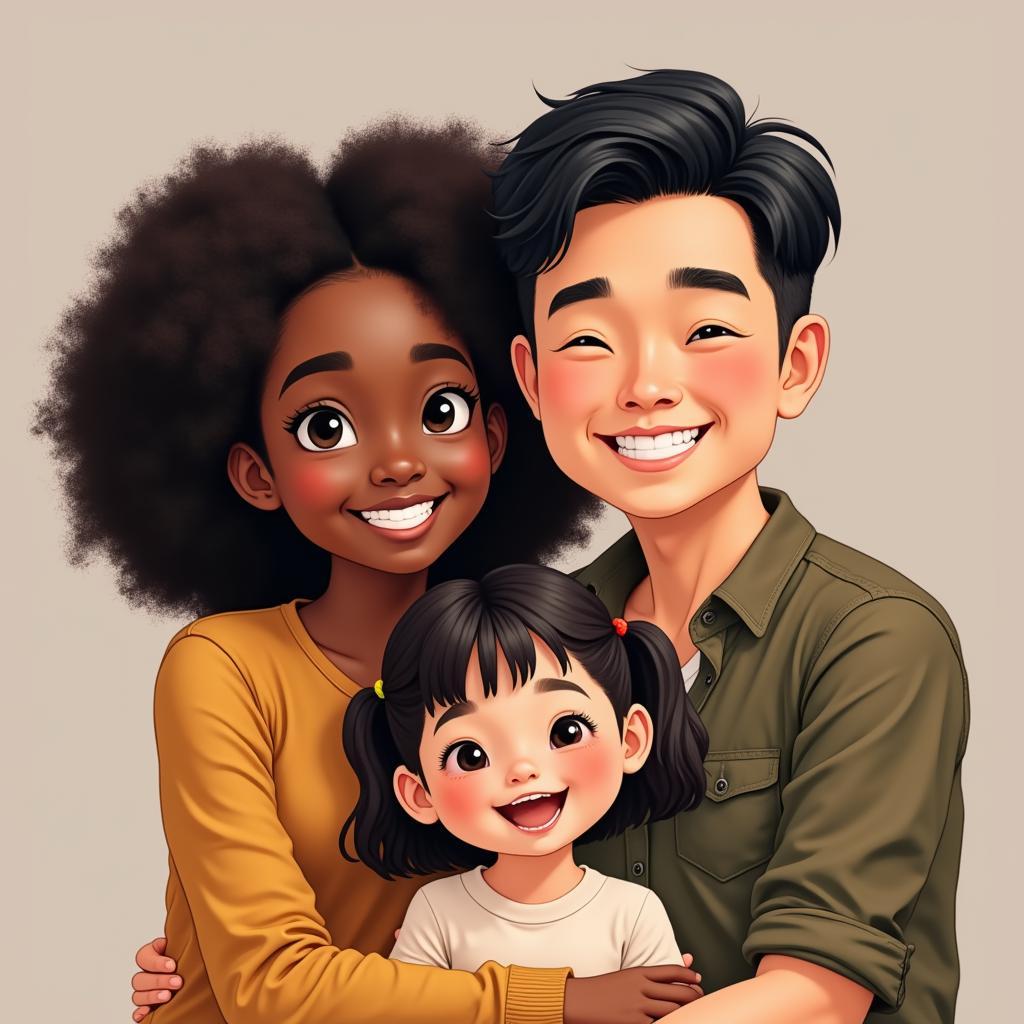 Portrait of a happy African Chinese family
Portrait of a happy African Chinese family
Navigating Dual Identities: The Experience of African Chinese Children
Children born to African and Chinese parents often grapple with the challenges of navigating two distinct cultural identities. They may experience a sense of belonging to both cultures while simultaneously feeling like outsiders in each. This complex interplay of identities can shape their upbringing, worldview, and sense of self.
Growing up with a dual heritage can be both enriching and challenging. These children often benefit from exposure to two different languages, traditions, and perspectives, which can foster adaptability, open-mindedness, and a deeper understanding of cultural diversity. However, they may also face prejudice, discrimination, and questions about their belonging within both communities.
How do these children reconcile their dual heritage? Many embrace their mixed identity as a source of strength and uniqueness. They may actively engage with both cultures, creating a blended identity that reflects their diverse background. Others may gravitate towards one culture more than the other, depending on their upbringing, social environment, and personal experiences.
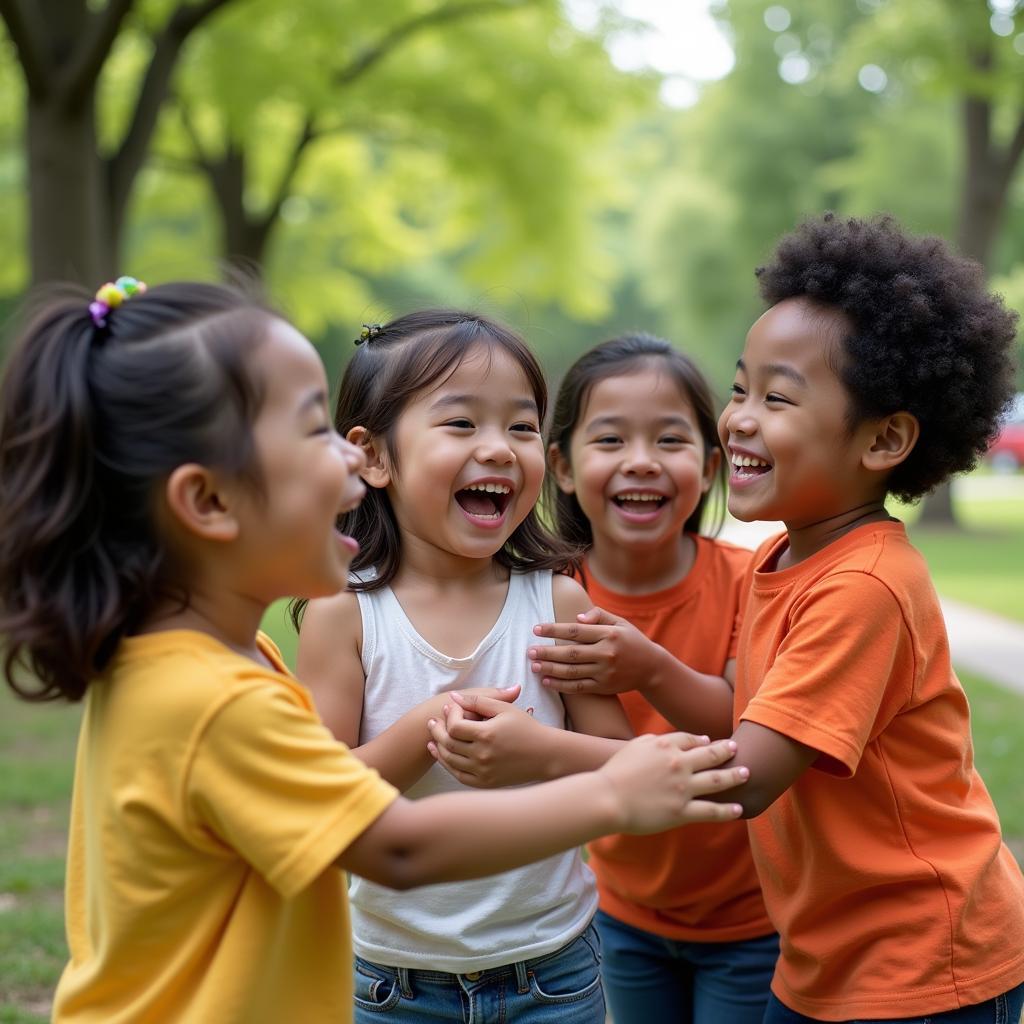 African Chinese children playing together in a park
African Chinese children playing together in a park
The Future of African Chinese Relations and the Emerging Generation
The increasing number of “African Chinese babies” symbolizes the growing interconnectedness of the world and the evolving demographics of Africa. This emerging generation represents a bridge between two cultures, offering the potential for greater understanding, collaboration, and cultural exchange.
What does the future hold for these children and the relationship between Africa and China? The future is uncertain, but full of possibilities. As this generation comes of age, they will play a crucial role in shaping the future of African Chinese relations. Their experiences, perspectives, and contributions will be vital in fostering mutual understanding, respect, and cooperation between these two increasingly interconnected continents.
It’s important to recognize that the “African Chinese baby” narrative is not monolithic. Each child’s experience is unique and shaped by a complex interplay of individual, familial, social, and cultural factors. Understanding these nuances is crucial to fostering inclusivity, celebrating diversity, and supporting this emerging generation as they navigate their dual heritage.
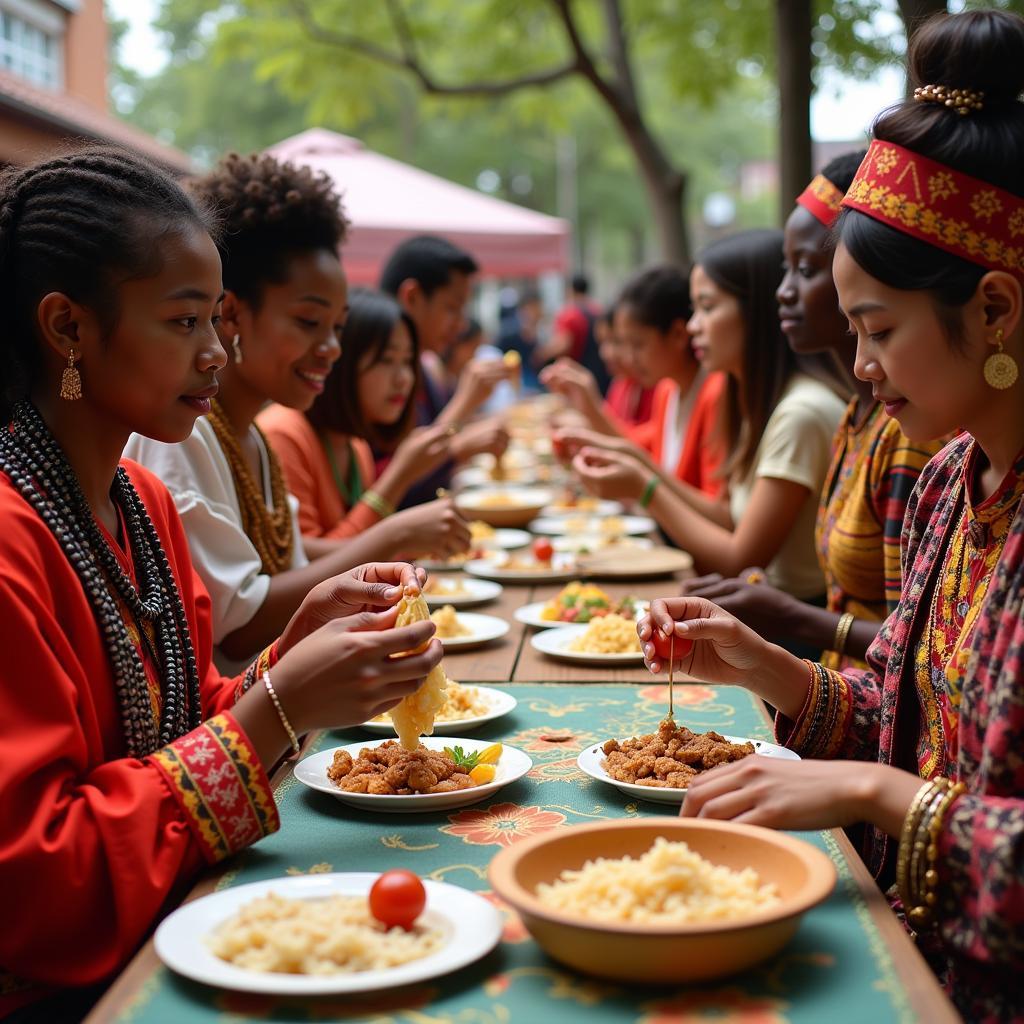 Cultural exchange event between African and Chinese communities
Cultural exchange event between African and Chinese communities
Conclusion
The emergence of the “African Chinese baby” narrative highlights the evolving dynamics of globalization and the increasing interconnectedness between Africa and China. Understanding the experiences, challenges, and opportunities facing this new generation is crucial to fostering inclusive societies and building stronger bridges between cultures. The future of African Chinese relations will undoubtedly be shaped by the contributions of this diverse and dynamic generation.
FAQ
-
What challenges do African Chinese children face?
They often navigate the complexities of dual cultural identities, potentially facing prejudice and questions about belonging. -
What are the benefits of growing up with a mixed African and Chinese heritage?
These children often benefit from exposure to two languages, traditions, and perspectives, fostering adaptability and a deeper understanding of cultural diversity. -
How does the growing Chinese presence in Africa impact local communities?
It brings economic opportunities but also raises concerns about labor practices, environmental impact, and cultural integration. -
What is the significance of the “African Chinese baby” narrative?
It symbolizes the growing interconnectedness of the world and the evolving demographics of Africa, representing a bridge between two cultures. -
How can we support African Chinese children and families?
By fostering inclusivity, celebrating diversity, and creating spaces where they feel valued and respected. -
What are some common misconceptions about African Chinese families?
That they are all the same, neglecting the unique experiences and challenges faced by each family and individual. -
How can we learn more about the experiences of African Chinese children?
By engaging with their stories, listening to their perspectives, and supporting organizations that work with mixed-race families.
Other Related Articles on African Life
- Exploring the Rich Tapestry of African Cultures
- The Impact of Globalization on African Societies
- Understanding the Nuances of Interracial Relationships in Africa
Need further assistance? Please contact us at Phone: +255768904061, Email: kaka.mag@gmail.com, or visit us at Mbarali DC Mawindi, Kangaga, Tanzania. We have a 24/7 customer support team.
